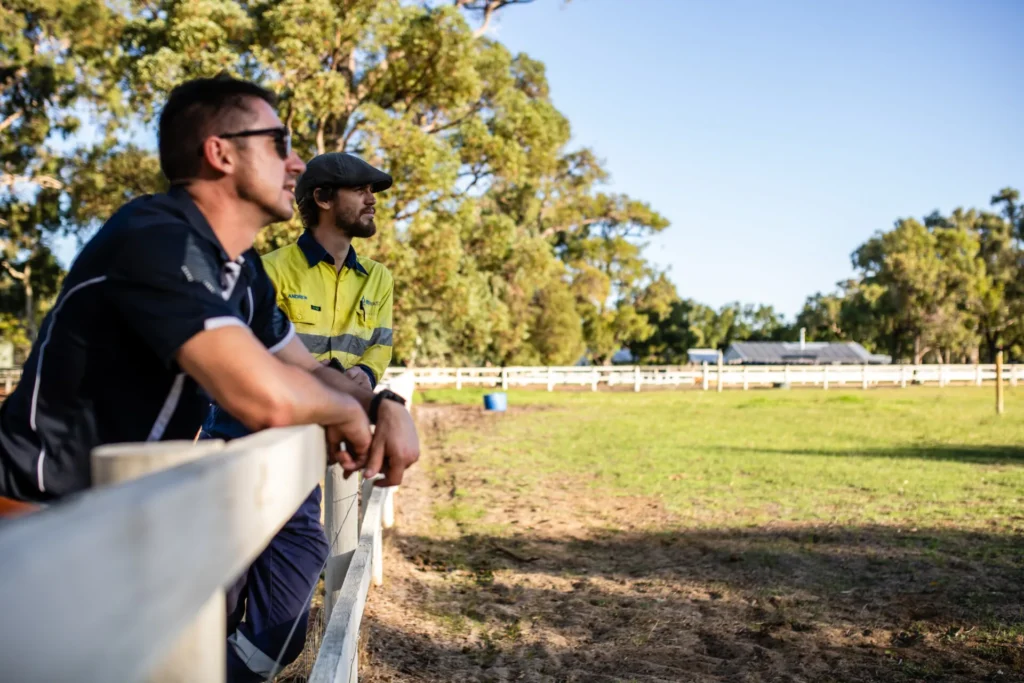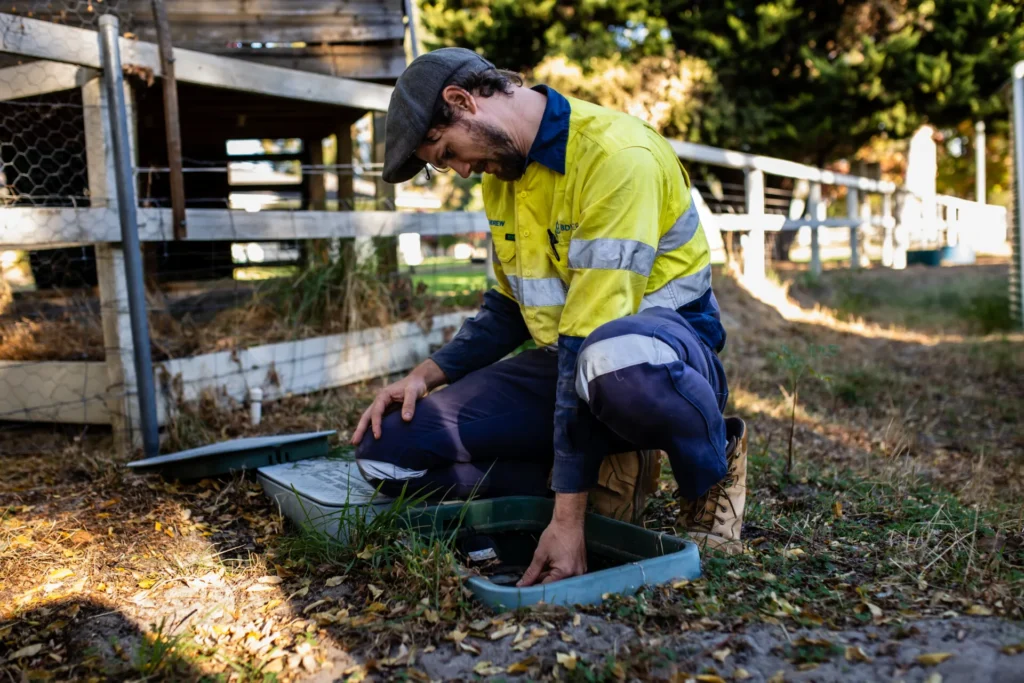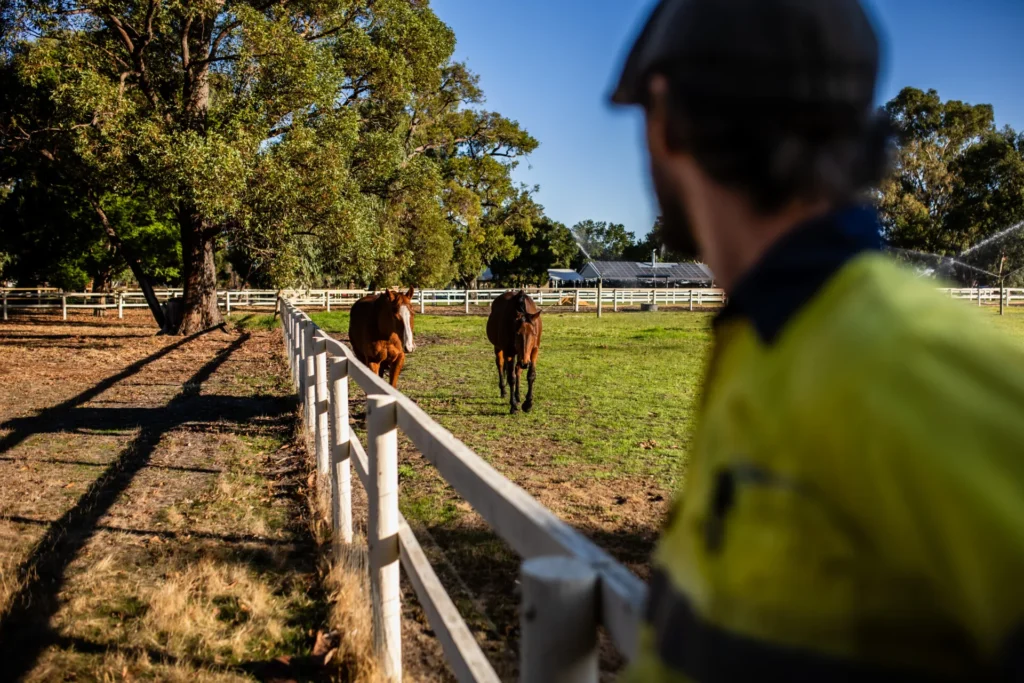Water Manager
Bores
Quality testing

Know the exact composition of the
water you're abstracting
Contaminated water can damage your plants, harm your livestock, or pose serious health risks to your family. By investing in the right water quality testing, you’re protecting both your investment and the well-being of everyone who relies on your bore water.

Why water quality testing is important
Potential contaminants
Water quality testing helps you understand what’s in your water and whether it meets the standards required for your specific needs.
What if my water is bad?
There are differnent solutions depending on the quality indicators. If the water has sediments or minerals, you'd look at a filtration system. If bacteria are detected, the water may need chlorine or another disinfectant to make it safe for use.
Ongoing quality checks

Main types of water quality tests
TDS & Metals
Chemicals & Bacteria
pH
Our Customers
What our clients and drillers say about us.
Should you test your bore water?
At BD Water, we offer comprehensive testing services to give you confidence in the quality of your water. Whether you’re using your bore for irrigation, stock watering, or industrial purposes, our expert team will help you ensure that your water meets the highest standards.
Frequently Asked Questions (FAQ)
When should I water?
You should set your system to water on your scheduled days. The optimum watering time is in the early morning. This allows the water to reach the roots without being evaporated or blown away. It’s also effective in preventing fungus or disease that is often caused by water sitting overnight on plants.
Can I maintain my bore during the winter sprinkler ban?
Leaving your pump and bore inactive over the entirety of winter is a hazardous corrosion risk, particularly where ones water supply is high in salts or iron.
As per Department of Water and Environmental Regulation guidelines, included below, it is legal to run your bore for one of your allotted watering days for a maximum station run time of 2 minutes. This is vital to keeping your pump and equipment in serviceable condition.
“The maintenance of garden bores is important and under the legislation a person does not commit an offence if the person operates a reticulation system, using domestic bore water to the minimum extent necessary while the reticulation system is being installed, maintained, tested or repaired.
We deem the ‘minimum extent necessary’ to be no more than two minutes per station. Running your reticulation longer than this may be deemed as watering your garden.
We recommend you carry out work on your sprinkler roster days, either before 9am or after 6pm.”
What is an Aquifer?
An aquifer is a body of water below the ground that is made of permeable rock, soil or clay that enables water to flow through it. Aquifers are generally referred to as confined and unconfined.
- Unconfined Aquifers (eg. Superficial) are naturally able to transfer water with the environment around it, such as a river, lake or the ground surface above. These are generally closer to the surface. Due to the unconfined nature, these aquifers are readily accessed and can vary greatly in production quantity and quality.
- Confined Aquifers (eg. Mirrabooka & Leederville) are separated and contained to a ground layer and area. These can still be extremely large, however, they are naturally sealed from other aquifers and environments, generally via an impermeable layer of clay, and should not blend with other aquifers. These bodies of water can still be accessed via a bore, although it is vital that they are sealed off during the drilling. As these bodies are enclosed, they can often produce very consistent production quantity and quality, usually at higher bore drilling costs, due to the depths and construction specifications required.
Does bore water need to be treated?
It may need to. Particularly if you are concerned with water quality, the first step in determining if treatment is needed is to conduct water quality testing. Once the test results are in, you can compare them with your required water quality indicators, and check if you need to treat it.
Generally, bore water doesn’t need to be treated it if it’s odourless, colourless, the pH tests greater than 5. If you have specific quality requirements for your water use, we can assess the filtration options you may need, and provide recommendations.
Bore water is not recommended for drinking water. If you do want to consume it, it’s important to test and chlorinate it properly. For more information about drinking from the water bores in Perth, consult the official drinking water guidelines.
What type of maintenance will I have to carry out on my bore?
The most important factor is that the bore construction is handled properly. Maintenance costs can be significantly reduced if the construction of the bore is done right in the first place. This is why we don’t compromise on the quality of our bore drilling and development services. The model and size of pump also affect the health of the bore, so they need to be carefully selected and tailored to the bore and irrigation needs.
Once the bore is installed, you should complete your flow testing and water quality testing to check the bore’s initial and likely optimal performance. Bores can improve over time, but if properly developed, the initial testing should be the highest quality and flow the bore can produce. This can then be used as a benchmark to measure the bore performance over time.
While the bore is operating, you should keep an eye out for signs of damage or corrosion, particularly when turning the bore back on for summer.
